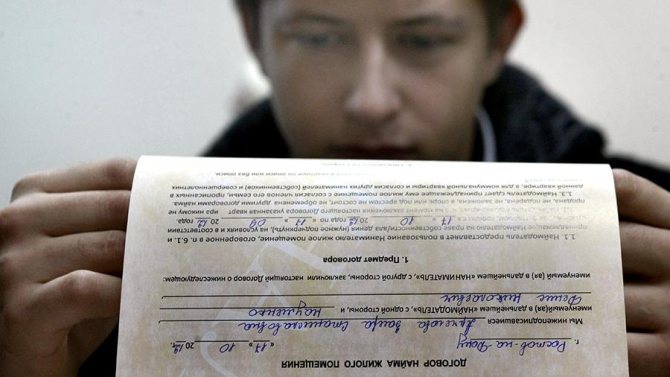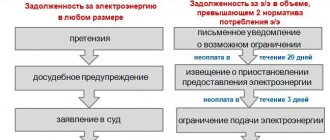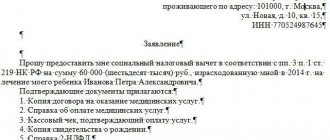What is the penalty for making noise in an apartment building after 11 pm?
Even if unscrupulous neighbors continue to disturb you, citing that they have not heard of anything like this, you need to call the local police officer and take action. Ignorance of the law is not an excuse .
The main parameter when peace and quiet is violated is time. As an example, let’s consider until what time you can make noise in an apartment building. It should be noted right away that other regions of the country may have their own standards, which are established by local authorities, but the differences are very insignificant.
For residents of multi-storey buildings, night time begins at 23:00 and lasts until 07:00.
Please note that when carrying out repairs or redevelopment in the apartment, there are restrictions that apply during the day. Namely, repairs in an apartment building cannot take longer than three months.
What is the law on silence in an apartment building?
Until a certain time, the area of maintaining silence was practically not regulated by law at the state level. It was possible to start only from the requirements of sanitary standards, which established a noise level of 40-50 dB as the maximum permissible, and 70 dB as harmful to human health. It was possible to bring the culprit to justice only for noise at night as a violation of public order.
Until 2006, the country had “Rules for the use of residential premises, maintenance of a residential building and local area”, approved back in 1985. Indirectly, the problem of noise was also addressed in Federal Law No. 52 and the Housing Code of the Russian Federation. Standardization by time of day is determined by SanPiN 2.1.2.2645-10. According to this document, daytime lasts from 07:00 to 23:00, respectively, night time - from 23:00 to 07:00.
Over time, relevant laws began to appear at the regional level, independently establishing the types of noise prohibited at certain times, based on the above regulations. However, regional laws lacked any uniformity of definitions.
One of the very first, successful and effective regional regulations regulating this area was the Moscow law on silence, the first edition of which appeared back in 2002. This law has been supplemented and improved many times. In 2014, a regional law “On ensuring peace and quiet of citizens in the Moscow region” was also adopted.
At the moment, quiet time in Moscow apartments is legally divided into the following periods, depending on both the time of day and the type of noise:
- On weekdays from 21:00 to 8:00 - night time;
- On weekends - from 22:00 to 10:00;
- From 13:00 to 15:00 - quiet time reserved for daytime sleep, necessary for infants and the elderly, during which repair work and the use of loud sound-reproducing devices are prohibited;
- Also, every day from 19:00 to 9:00 it is unacceptable to carry out repair work in apartment buildings.
It should be noted that the latest rules apply to houses commissioned more than a year and a half ago, since such restrictions cannot be imposed on residents of a new house. Since literally everyone carries out renovation work in new buildings, only the rule on silence at night applies to those living in such houses.
In some regions of the country, according to local laws, public order at night requires different hours of silence. For example:
- From 22 to 07 hours - Voronezh;
- from 23 to 06 hours - Kazan and Pskov;
- from 23 to 08 hours - Sverdlovsk region and the city of Yekaterinburg;
- from 23 to 12 hours - St. Petersburg.
Recently, amendments to Federal Law No. 52 “On the sanitary and epidemiological welfare of the population” came into force in Russia, which includes a section on silence, which is commonly called the “law on silence in apartment buildings”, designed to protect the peace of citizens, limiting the acceptable type and the noise level for the night period and beyond, as well as clear time limits for its admissibility.
Limit values and types of noise
Let's figure out what level of noise is created by various sources:
- Human whisper, wall clock - about 30 dB;
- Conversation, normal speech - 40-45 dB;
- Working vacuum cleaner - approximately 75 dB;
- The cry of a child, the cry of an adult - about 90 dB;
- Drill - 95 dB, etc.
In Moscow, the law provides for the following noise level limits:
- During the daytime - 55 dB. In this case, it is allowed to exceed the limit value by 5 dB, and in areas adjacent to railway tracks and highways - by 10 dB;
- At night - 45 dB.
Let us remind you what types of noise are prohibited in Russia by the law on silence:
- Playing musical instruments, singing, whistling;
- Swearing: speaking in a loud voice or shouting;
- Watching movies or playing music at high volume;
- Use of pyrotechnics;
- Car alarm (if activated repeatedly);
- Construction, repair work; moving furniture;
For more information about types of noise prohibited by law, see Art. 23 Federal Law 52 “On the sanitary and epidemiological welfare of the population.” The link to download the law is at the end of the article.
What should I do if the source of the noise is a crying child or a barking dog (or the loud sounds of another animal)? For objective reasons, this question is quite ambiguous and sensitive. If a child's crying continues daily and for a long time, while the family is considered dysfunctional and there are no signs that the adult residents are taking any action to stop the crying, you can contact social services. If endless barking causes concern (many animals experience anxiety when left alone in a room), it is necessary to have a conversation with the owner, discussing ways to solve the problem.
It is necessary to understand that when it comes to maintaining peace and quiet for citizens, this means maintaining silence not only within residential apartment buildings (although this issue is indeed the most pressing), but also:
- In the local area, children's and sports grounds of residential neighborhoods;
- In buildings and on the territories of various medical, educational, rehabilitation, dispensary institutions, hotels, hotels, etc.;
- Also, establishments (shops, cafes, bars) located near a residential building are required to respect the rights of citizens living there;
- On the territory of garden and dacha associations.
Quiet on weekends and holidays
The law on silence in the Russian Federation provides for a different quiet schedule for holidays and weekends. So, on Saturday, Sunday and holidays, the period of silence increases by 2 hours, starting not at 21:00, but at 22:00, and lasts until 10:00 the next day.
NO RESTRICTIONS APPLY ON JANUARY 1st.
Due to the fact that the New Year in Russia is celebrated by the absolute majority of residents and is considered truly national, separate rules were prescribed in the law for this holiday. According to the amendment made to the law in 2020, on January 1, citizens are allowed to make noise even at night . This relaxation no longer applies to other holidays.
Features of repair work
Before starting renovations, redevelopment of premises and repair work, a citizen should study the law regulating silence and all amendments made to it. Awareness of this issue will help you avoid conflicts with neighbors, learn your own rights and the amount of responsibility required by law for violating the rights of others.
According to the law on silence, it is prohibited to carry out repair work in an apartment building on weekends and holidays approved by the Government.
The Silence Law stipulates that repair work can only be carried out on weekdays from 9 a.m. to 7 p.m.
In certain regions of Russia, it is permissible to carry out work on repairs, reconstruction and redevelopment of premises on Saturday, if this day has been declared a working day. Also, in certain regions of the Russian Federation, a different schedule is in effect and a later deadline for completing repair work is set - 22 hours.
Also, according to the law on silence, work related to the safety of people living in an apartment building is allowed.
The procedure for carrying out repair work in residential premises is specified in more detail in Art. 27 Federal Law 52 (link to download the law - at the end of the article).
Administrative fine for non-compliance with the regime
What threatens noisy neighbors, what punishment is provided for violating the silence regime, and how is it regulated?
A citizen can be required to comply with sanitary standards on the basis of the Federal Law “On the Sanitary and Epidemiological Welfare of the Population.” If the police or employees of the Ministry of Emergency Situations record noisy behavior that falls under the definition of a violation of public order, according to regional standards, the noisy neighbor is fined 500 rubles , then the fine doubles.
For officials, a fine of up to 1,500 rubles is provided, for a repeat offender - up to 10,000, for legal entities - 10,000 - 30,000.
- Moscow and region . Sanctions for violations for ordinary citizens amount to 1,000–2,000 rubles, for officials – 4,000–8,000, for legal organizations – from 40 to 80 thousand rubles according to Art. 3.13 Law of Moscow dated November 21, 2007 N 45.
- St. Petersburg . For individuals – from 500 to 5,000 rubles; for officials – from 25,0000 to 50,000 rubles; for legal entities - from 50,000 to 200,0000 rubles based on Art. 8 of the Law “On Administrative Violations in St. Petersburg”.
- Novosibirsk : for citizens 3,000 rubles; for officials - 5,000 rubles; for legal entities - 10,000.
- Saratov : for citizens – from 500 to 1,500 rubles; for officials – from 2,000 to 5,000 rubles; for legal entities from 15,000 to 30,000 rubles.
- Kemerovo : for citizens – from 500 to 1,009 rubles; for officials - from 1,000 to 2,000 rubles, for legal entities from 2,000 to 5,000 rubles.
- Tyumen : for citizens 1,000 to 2,000 rubles, for officials - from 3,000 to 5,000 rubles, for legal entities - from 5,000 to 10,000 rubles.
- Rostov : for citizens from 500 to 5,000 rubles, for officials - up to 20,000 to 30,000, and for legal entities - from 30,000 to 60,000.
- Chelyabinsk : for citizens 1,000 - 5,000 rubles, for officials from 4,000 to 5,000 rubles, for legal entities from 10,000 to 100,000 rubles.
- Tagil : for citizens from 500 to 2,000 rubles: for officials - from 1,000 to 5,000 rubles; for legal entities – from 3,000 to 7,000 rubles.
Penalties
Now, lawyers note, the permissible noise level in residential premises is established by two regulations. On the one hand, the guiding star is the Decree of the Government of the Russian Federation of January 28, 2006 No. 47 “On approval of the Regulations on the recognition of premises as residential premises, residential premises unsuitable for habitation and an apartment building as unsafe and subject to demolition or reconstruction,” on the other hand, the resolution of the main state sanitary doctor of the Russian Federation dated June 10, 2010. No. 64 “On approval of SanPiN 2.1.2.2645-10.” For violation of sanitary and epidemiological requirements, Article 6.4 of the Code of Administrative Offenses of the Russian Federation provides for a fine of 500 to 1 thousand rubles for citizens.
fine
Photo: IZVESTIA/Dmitry Korotaev

He created silence: a family man shot his neighbors for talking loudly
Details of the murder of five people in the Ryazan region
The new bill plans to clearly define what is considered noise - “these are sounds whose source is located in a residential or non-residential premises and which are clearly audible outside this premises.” At the same time, Anatoly Vyborny points out that, for example, the crying of a child, the sound of footsteps while walking, the sound of flowing water, or noise from emergency rescue operations that are related to ensuring the safety of citizens will not be considered a violation of silence.
It is also planned to amend the Code of Administrative Offenses and increase fines for non-compliance. Some experts even suggest increasing them to 50 thousand rubles.
“The mechanisms must be effective. Why do they consider it advisable to establish more serious fines for violating the “silence law” - up to 50 thousand rubles? Because it will be a strong deterrent. Having once been brought to administrative responsibility in this manner, few people will have the desire to misbehave again. In my opinion, it should be increased - at the first stage from 3 thousand to 10 thousand rubles,” Anatoly Vyborny tells Izvestia.
Responsibility
If the other residents of the house are not aware that you cannot listen to music or talk loudly at night, then it is better to remind them of this. You will always have time to call the police, but isn’t it easier to resolve the issue through a conversation?
Every time the noise level is exceeded, try to resolve the problem yourself ; if after your warning the problem is solved, there is no need to call the police. If after your warning the situation has not changed, you should contact the local police officer.
Important! According to Art. 25 of the Constitution of the Russian Federation on the inviolability of the home, violators of peace and quiet may not open the door to the district police officer, and he can get inside by opening the doors by force, only if after his arrival the noise continues and it was possible to record it using instruments.
If the door is still opened, depending on the situation, the violator will pay a fine of 2 x minimum wage (minimum wage). Considering that for Moscow and the region the minimum wage is approximately 9,000, which once again indicates the scale of the fine.
How to attract noisy neighbors?
The application is written to the local police officer in free form. It is imperative to note the repeated violations of silence, the measures taken, and the number of calls to the police. If other residents sign your application, this will only be a plus.
Who is responsible if the tenants of the apartment are very loud?
All claims are made to the owner of the apartment . If the apartment is rented out, the landlord is still responsible, who in turn can hold the tenants accountable, based on the lease agreement, which stipulates the conditions for using the living space.
Impact from above
On the one hand, the silence breaker may be the owner of the premises, who actually lives there. On the other hand, there is a lodger. Therefore, the authors of the bill propose to act in all cases on the owner of the premises.
“It is extremely difficult to ask a tenant - today he lives in the premises, tomorrow he has already moved out. And the owner is registered there, he can be identified. But the tenant can be influenced through the same owner, who will call him and say that either he follows the rules or moves out. This will be much more effective than if a neighbor comes knocking on the door,” said one of the authors of the bill, a member of the State Duma Committee on Security and Anti-Corruption, Anatoly Vyborny, in an interview with Parliamentary Newspaper.
rent

Photo: TASS/Valery Matytsin
Weak ties: will the pandemic change relations with neighbors
Sociologists talk about why it was not easy for people to unite to help each other
In a conversation with Izvestia, the deputy notes that the problem has been brewing for a long time, and the pandemic has only aggravated the situation.
“We are actually removing the reason, which entails extremely serious consequences. After all, it is known that many quarrels arise on domestic grounds, which, in fact, are a prelude to the commission of more serious offenses. This is on the one hand. On the other hand, we remove the discomfort: a person comes home, he wants to relax in silence, and the neighbors, on the contrary, play serious hard rock. In fact, we are raising relations that are currently not properly regulated to a completely different level of regulation,” notes Anatoly Vyborny.
According to him, now there are no “uniform rules of the game” or a law that would spell out, among other things, mechanisms for recording violations. Each region sets its own rules, some have none at all. For example, in Moscow you cannot make noise from 23.00 to 07.00. At the same time, noisy repairs are prohibited from 19 to 9 hours and from 13 to 15, as well as on Sundays and non-working holidays. In the Tula region, amendments were adopted in the first reading that prohibit making noise from 21:00 to 9:00 and from 13:00 to 15:00 on weekdays, as well as around the clock on Sundays and holidays. The new bill should eliminate the shortcomings.
noise

Photo: Depositphotos

Pour and beat: neighbor's drinking bouts end in shooting
Citizens are not always successful in finding activities to do during self-isolation
“Everyone solved the problem in their own way and in the way they saw fit: some with words, others with fists,” says the deputy. He himself twice talked to his neighbors about loud music - persuasion helped. — At the federal level, we establish basic criteria: what is noise that violates the rights of other residents, and what is not. Regional authorities, within the framework of their competence, establish the time of silence and determine which services will be responsible for recording, conducting examinations and bringing to justice violators of the “silence regime”. Somewhere it could be the Housing Inspectorate, somewhere it could be Rospotrebnadzor, law enforcement agencies. Each region has its own experience and practice, but there must be a unified approach.”
Procedure for imposing a fine
In order to fine a violator, it is necessary to prove his offense. Therefore, citizens who are disturbed by loud noises should contact the police. The district police officer goes to the scene of the offense, records this circumstance with the participation of witnesses, draws up a protocol on the offense and, on the basis of this, issues a decision on an administrative offense. The amount of the fine is determined by the local police officer independently within the framework established by law.
If this measure does not help and the offender continues to make noise at inappropriate times, citizens have the right to go to court to recover moral damages from him. The amount of damage will be insignificant - in the range of 3-5 thousand rubles, however, in the event of a collective complaint, the amount of penalties may be quite impressive for the violator. However, he will still have to pay all legal costs. Such a measure will certainly solve the problem with the violator; in addition, it will provide an opportunity to at least partially compensate for the moral damage.
But to go to court, you will need to collect evidence, which may include not only the decisions of the district police officer and the testimony of neighbors, but also video footage, sound recording, and other evidence of the violation.
From what time and until what time can repair work be carried out?
Time is the main parameter regulated by the law on silence. It is necessary to comply with the standard noise level at night and during the day. During working hours, background noise is allowed at a level of up to 40 dB. The nighttime norm drops to 30 dB.
The regulatory noise limit must be strictly observed between 11 pm and 8 am. This figure may vary in different regions of the country.
Some regions have different hours of silence. For example, in Moscow, repair work is allowed on weekdays from 9 a.m. to 7 p.m. It is strictly forbidden to violate the law on silence:
- on weekdays - from 21.00 to 08.00;
- on weekends and holidays - from 22.00 to 10.00.
The ban is lifted only on New Year's Day.











